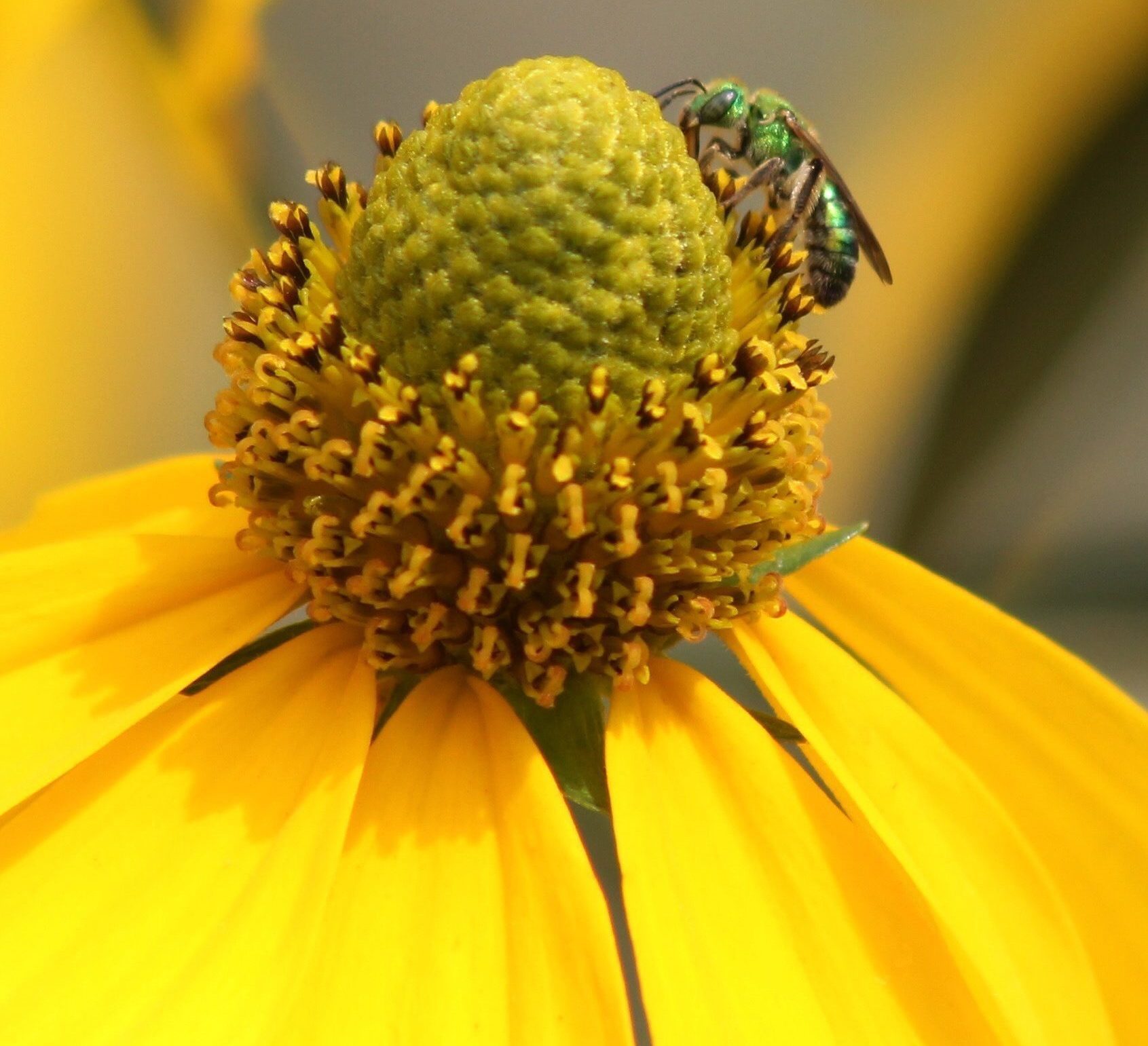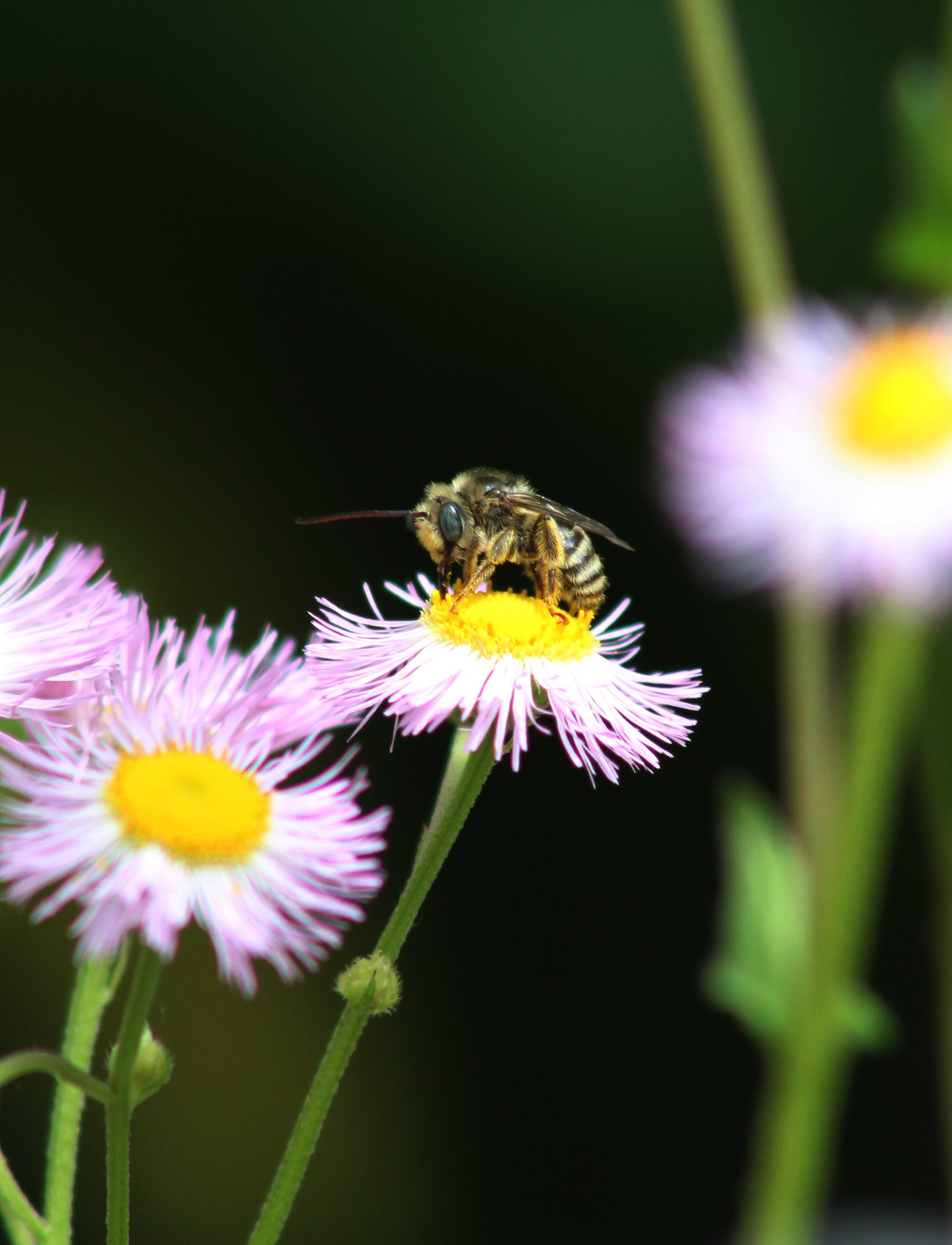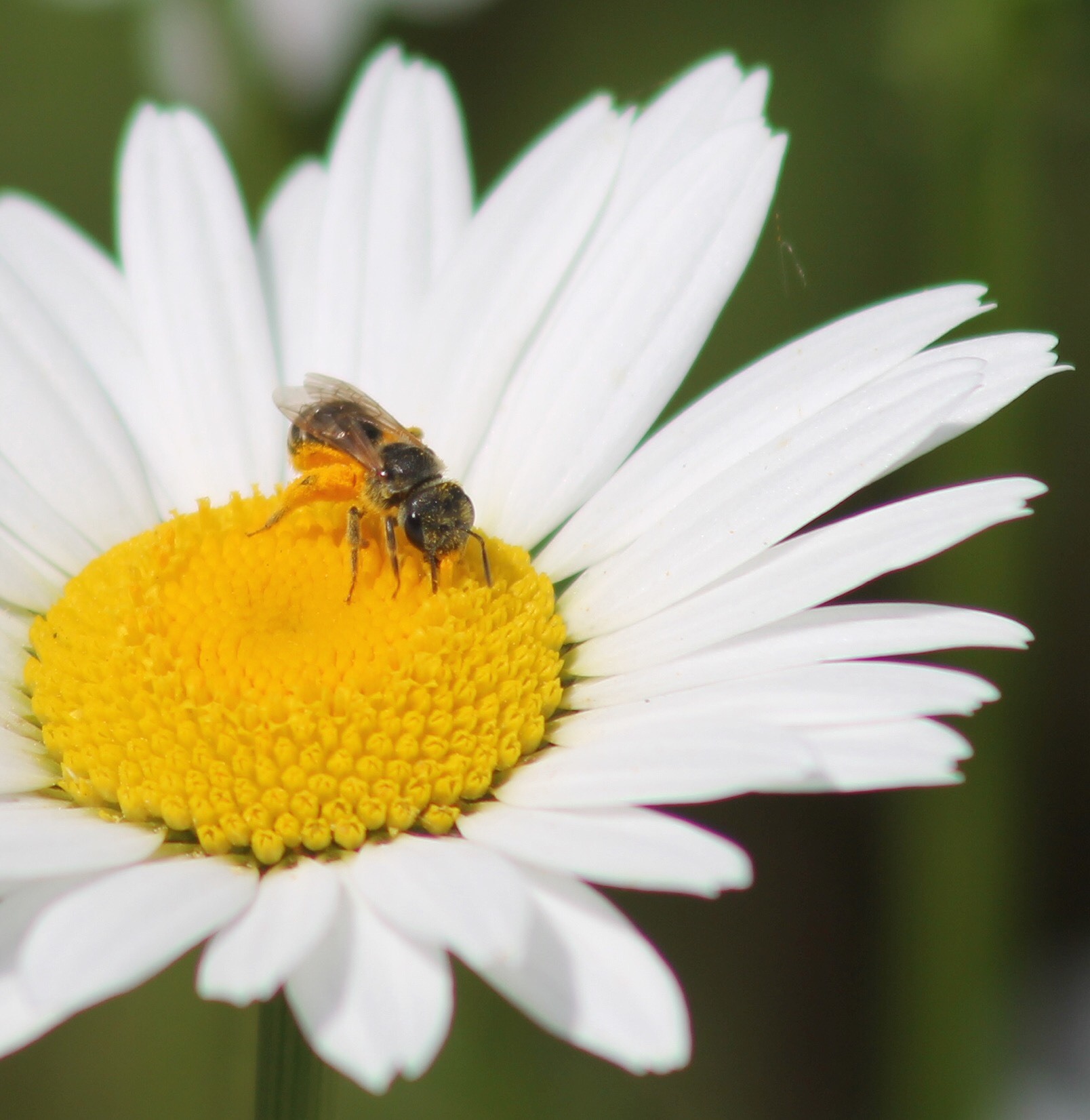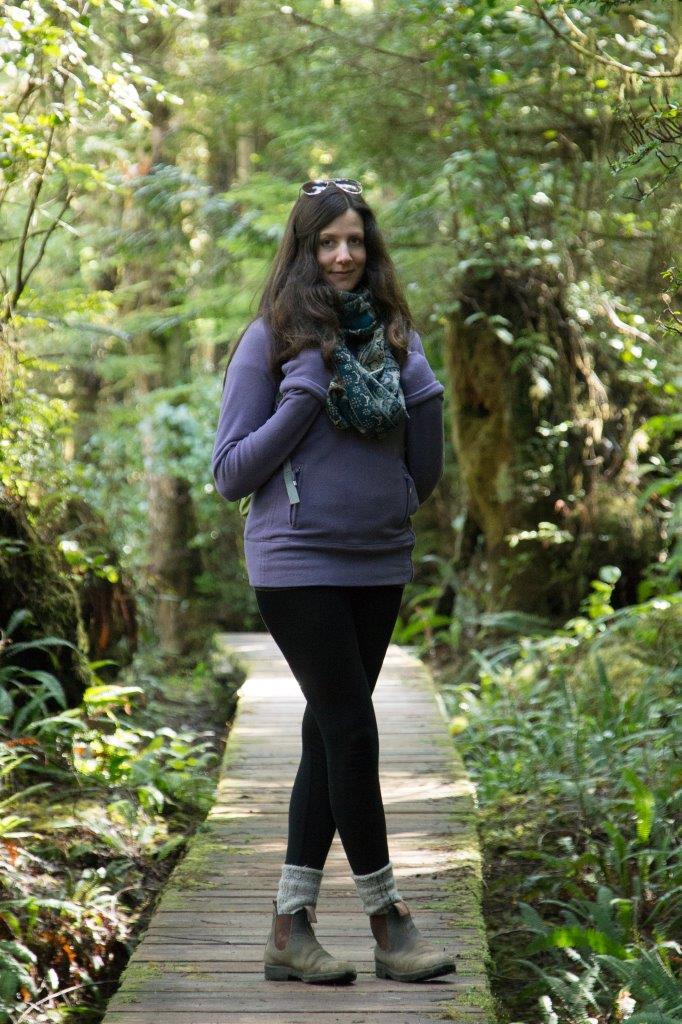Making the Case for Pollinators & Pollinator Conservation on Southern Vancouver Island & the Gulf Islands
Metallic green sweat bee, Anthony Colangelo

By Jennifer A. Lotz, Pollinator Partnership Canada
Our planet, our home is experiencing unprecedented, global change. Dates as to exactly when this change began are argued among anthropologists and earth scientists alike; however, what is coming to be a more commonly accepted fact unanimously amongst scientists is that human activities are directly affecting the functioning of ecosystems and challenging the preservation of global biodiversity. So why does all of this really matter, you may ask? Loss of ecosystem resilience, biodiversity loss, and climate change all pose risks to the provision of ecosystem services, which provide the basis for every human life on this planet.
Long-horned bee, Anthony Colangelo

Of one of these essential ecosystem services is pollination, and humans rely on the thousands of different species, mostly insects, to provide this service. All of the same threats that are affecting ecosystem resilience and biodiversity are having just as great of an impact on these small and important, but often overlooked creatures. So, why do pollinators deserve the limelight? About one third of the food that we eat every day is the direct result of pollination, and without pollinators our diets would lack exciting and essential foods such as fruits, vegetables, and even coffee and chocolate! In addition to the food we eat, pollinators also support healthy ecosystems that improve air quality, stabilize soils, and support all other wildlife. Pollinator declines can have large impacts given the critical roles that they play in ecosystem health. These small, but mighty organisms need our help to get populations thriving again! Pollinators are a diverse group of organisms that visit flowers to feed on pollen and nectar or to collect oils and resins. In the process pollinators transfer pollen grains and assist plants in reproduction, supporting productivity in natural and agricultural landscapes. Native bees and other pollinators play a key role in the functioning of our global and local economies through the pollination services they provide to the agriculture industry.
Pollen Pants bee, Anthony Colangelo

Bees are the main pollinators of many wild flowers and agricultural crops across Canada. Most of us are familiar with the colonies of honey bees that have been the workhorses of agricultural pollination for years in Canada. Honey bees are not native to North America, or a natural part of our ecosystems. They were imported from Europe almost 400 years ago and continue to be managed for honey production and crop pollination services. But, largely unheralded, there are over 20,000 species of native ground and twig nesting bees globally, 800 in Canada, and over 200 locally here on Southern Vancouver Island and the Gulf Islands! These bees have evolved with the local flora, and most of these bee species live solitary lives; a minority are social and form colonies or nest in aggregations. Native bees come in a variety of body shapes, sizes, colours, and some even have tongues of different lengths. Most people don’t even recognize many of them as bees! Native bees visit the widest range of flowers and crops of any pollinator group, and in many cases they are better at transferring pollen than honey bees. Our native bees can be encouraged to do more to support agricultural production if their needs for nesting habitat are met and if suitable sources of nectar, pollen, and water are provided.
Red Admiral butterfly, Anthony Colangelo
Many pollinator populations and species are in decline likely due primarily to habitat loss, disease, climate change, competition with managed pollinators, and the use of pesticides. Although not present on Vancouver Island, Monarch butterflies can be found throughout other areas of BC and Canada, and have seen one of the most dramatic population declines with 90% losses and shrinking overwintering numbers. Without feeding and nesting habitats, native pollinators cannot function to support terrestrial ecosystem productivity. The decline of these pollinators is a serious problem that requires immediate, local action to ensure that Canada and Vancouver Island’s food system and natural environment are productive and resilient. Establishing goals to secure habitat for pollinators is an essential strategy that will take buy in, co-ordination, and commitment from a number of sectors including government, industry, and citizens. The habitat requirement of pollinators is quite simple: they need regular access to foraging areas – flowers that bloom throughout the season, low exposure to insecticides, and nesting areas such as accessible soils and woody vegetation. Whether you are a small-scale farmer, a public or private land manager, or a gardener with a small lot, you can increase the number of pollinators in your area by making conscious choices to include native plants that provide essential habitat for bees, butterflies, moths, beetles, hummingbirds, and other important pollinators. As our Pollinator Partnership motto says, ‘Protect their lives; Preserve ours’. For more information on how you can become involved, please visit the Pollinator Partnership website at www.pollinatorpartnership.ca or our local Island Pollinator Initiative (IPI) website at http://islandpollinatorinitiative.ca/. The IPI is a coalition of local organizations that are dedicated to promoting the protection of native and managed pollinators on Vancouver Island and the Gulf Islands through collaboration, event and information sharing, outreach, and action.
